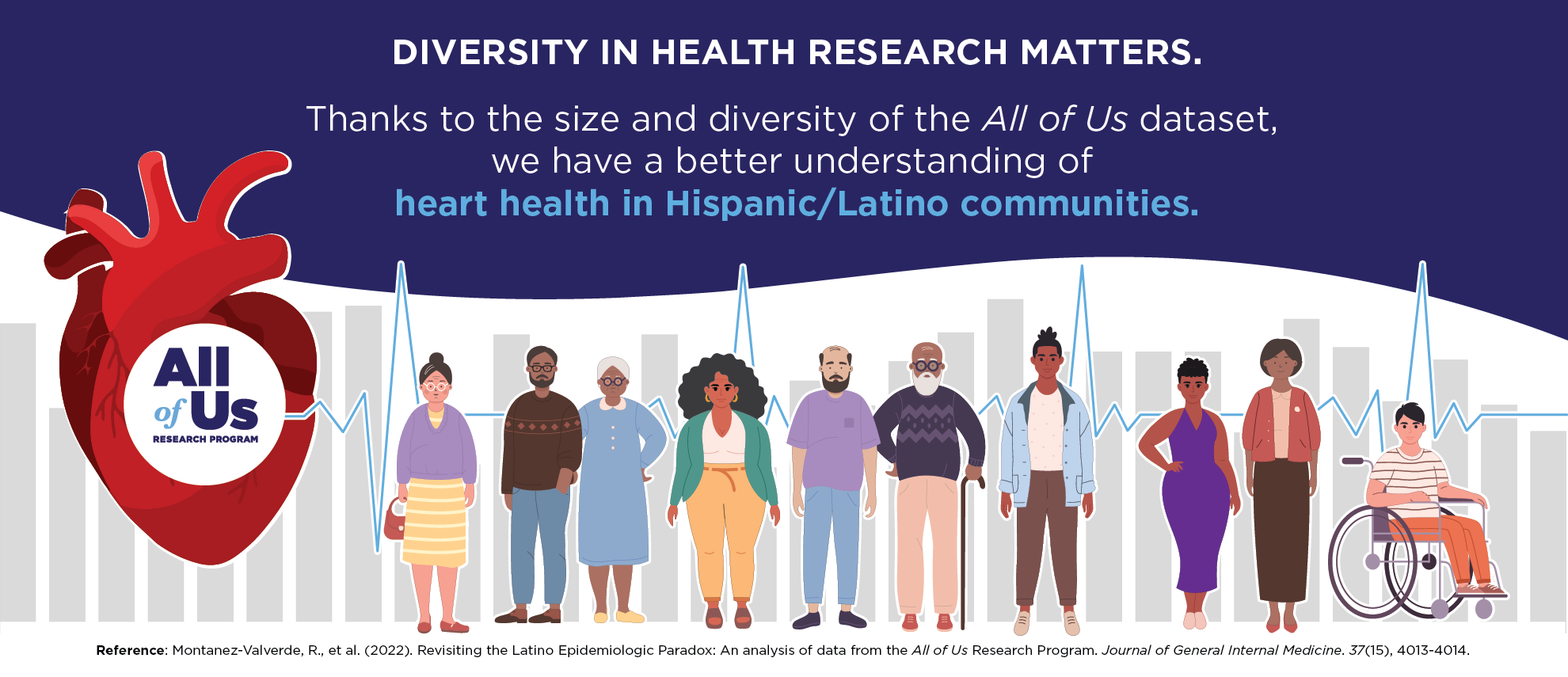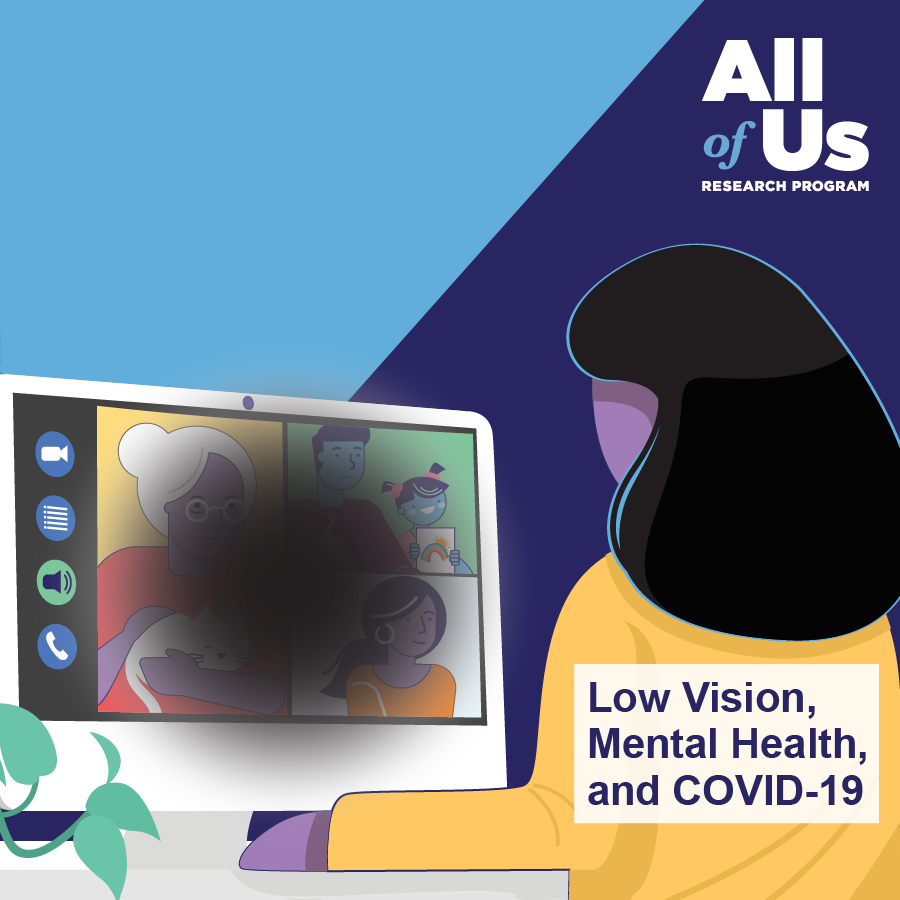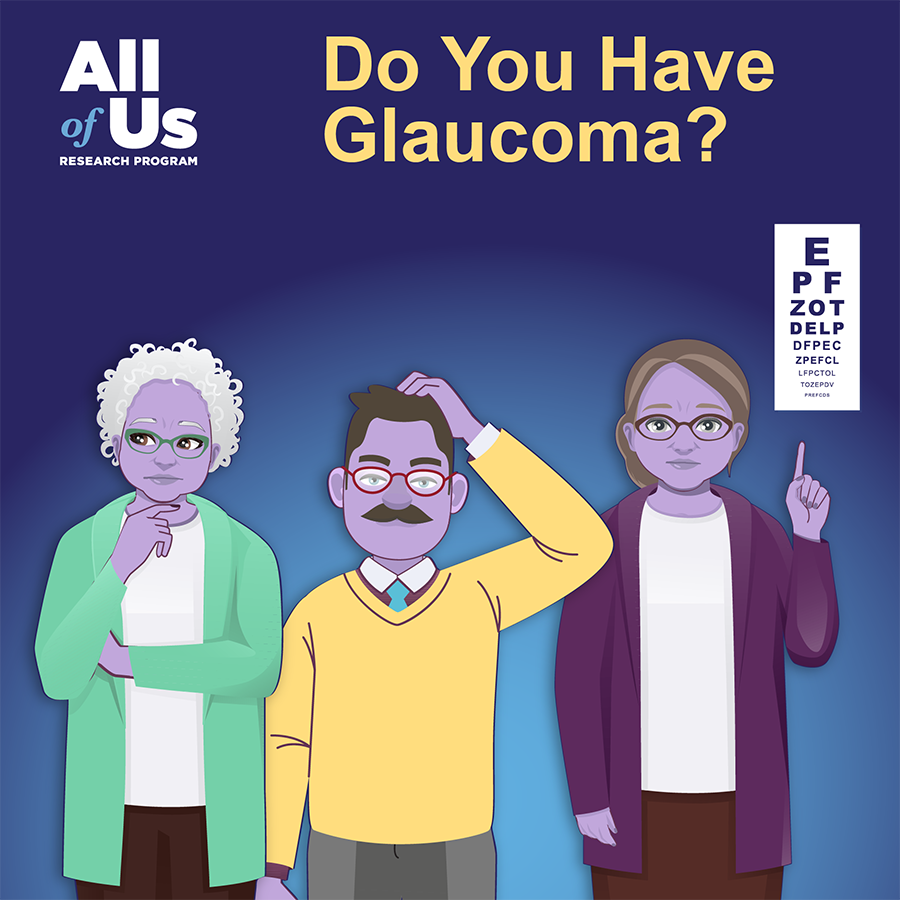
Key points
- Heart disease is more common among Hispanic/Latino people than past studies showed.
- These studies reported less heart disease despite this group’s higher risk.
- Researchers now know more about heart disease because of the size and diversity of the All of Us dataset.
Heart disease is the number 1 cause of death in the United States. While heart disease is common, it affects certain groups differently. Researchers want to learn more about these differences, known as health disparities. That way, public health efforts to reduce heart disease can be better tailored to communities’ needs.
Past study findings about heart disease in Hispanic/Latino people are puzzling. Studies have shown that they have lower levels of heart disease than non-Hispanic White people even though their risk for heart disease is higher.
Thanks to the depth and diversity of data that All of Us participants share, new research may challenge these findings.
Researchers looked at data shared by thousands of All of Us participants. More than 40,000 of these participants self-reported as Hispanic/Latino. What did the researchers find? More Hispanic/Latino people have heart disease than we thought.
The results are published in the Journal of General Internal Medicine.
Digging Deeper With All of Us Data
For this study, researchers looked at electronic health record data from more than 200,000 All of Us participants. This included participants who self-identified as:
- Non-Hispanic White (White)
- Hispanic/Latino
- Non-Hispanic Black/African American (Black)
They found that heart disease rates are higher in Hispanic/Latino people than in White people. Hispanic/Latina women had higher rates of heart disease than White women. Hispanic/Latino men had higher rates of heart disease than Black men and White men.
These results challenge what we thought we knew about heart disease in Hispanic/Latino people.
What’s Next
People who identify as Hispanic/Latino come from diverse backgrounds. The All of Us dataset is one of the largest datasets of Hispanic/Latino people living in the United States. This study shows that diversity in health research can help us better understand how disease affects certain groups differently.
Past research has shown that Hispanic/Latino people have lower levels of other health conditions, too. Future studies using All of Us data could double-check these findings. Health care providers can then recommend personalized ways for people to reduce their risk of disease.
Interested in All of Us?
- Read more research highlights.
- Learn about participation in the program.
Conduct research with All of Us
- Learn about opportunities for researchers.
- Find funding to support research using All of Us data.
- See more research projects made possible by All of Us data and tools.


